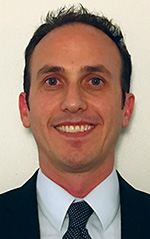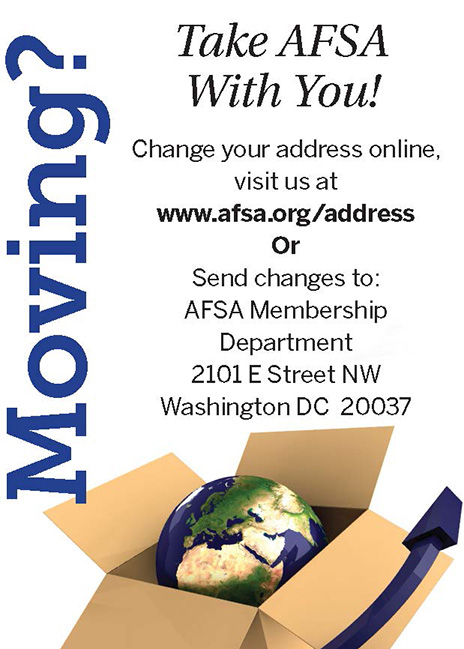How to Get More Bang for Our FSI Buck: Engaging Foreign Diplomats and Diasporas
Speaking Out
BY MICHAEL ROSENTHAL
Now celebrating its 70th anniversary, the Foreign Service Institute is an incredible resource. It is certainly among the best diplomatic training institutions in the world, offering courses in language, area studies, leadership and professional skills.
My experience with India and Indian- Americans, however, has convinced me that FSI could do more. It could play a prominent role in department-wide efforts to better engage two underutilized partners: foreign diplomats and domestic diaspora populations.
The State Department, using FSI’s capabilities, should seek to improve tradecraft and increase interoperability with foreign diplomats by sharing best practices and conducting joint simulations and training. FSI can also better engage America’s diaspora communities, leveraging their ties with homelands and connecting the department with taxpayers countrywide.
Such efforts will require something of a culture change at FSI, which has traditionally been inward-focused, as well as support from other bureaus. Recently, FSI has expanded outreach to bring in new ideas and new partners in adult education. But more can be done, even during a difficult budget climate.
At a time when the department is being called upon to build domestic support for our foreign policy and to promote burdensharing by other governments, enlisting the support of diasporas and engaging foreign diplomats as force multipliers can increase the effectiveness of American diplomacy and reduce costs.
Foreign Diplomats Are Natural Partners
Foreign diplomats are among the most important interlocutors for the State Department. Abroad, we engage with hostcountry ministries of foreign affairs (MFAs) on a range of consular, political, economic and other issues.
We cooperate with third-country diplomats, as well, sharing information and addressing common concerns in the host country such as the investment climate or human rights.
Though some foreign counterparts do not share our interests, and like-minded envoys may compete with us occasionally (e.g., on defense contracts), State has much to gain from expanding interactions and influence with foreign diplomats. It’s a wonder, then, that the department has not made a concerted effort to build habits of cooperation with friendly diplomats or help build the capacity of developingcountry MFAs.
Most readers will be familiar with the impressive range of programs run by the Pentagon (often in cooperation with State) to develop the capacity of foreign militaries. One of the key strengths of NATO, for example, is the high level of interoperability developed through decades of multinational training and education.
The engagement exposes counterparts to the best practices of the U.S. military, including respect for human rights. It helps the military develop contacts among foreign officers, some of whom end up in leadership. Engagement includes education, for example, at the National Defense University in Washington; the deployment of trainers to assist host-country forces; and multinational exercises around the world.
Some readers may not be aware, though, that many MFAs—from the United Kingdom to Mexico, Turkey and China— apply the same idea to diplomacy. The training courses, typically a few weeks long, are similar to our International Visitor Leadership Program, with an emphasis on host-country culture and policies, including visits outside of the capital. But they usually also share best practices in tradecraft, such as cable writing. The host governments then have an alumni network of foreign diplomats to cooperate with around the world for years to come.
The Indian Example
India is particularly active in using the Indian Foreign Service Institute to engage foreign diplomats. New Delhi maintains cooperation agreements with 59 countries. The institute, which has been preparing Indian diplomats since 1986, has trained approximately 1,500 foreign diplomats since 1992.
While on the India desk, I worked with South Asia Area Studies Chair Dr. Kiran Pervez at our own FSI and the Embassy of India in Washington, D.C., to build connections and share best practices with India’s FSI. Even without a formal agreement, we were able to build some familiarity between the two institutions.
We exchanged syllabi from courses such as A-100, the ambassadorial seminar and economic tradecraft. We learned, for example, that during their equivalent of A-100, Indian diplomats travel to army bases to experience military culture and are assigned a home state to stay in touch with during their careers.
We arranged reciprocal visits by instructors and diplomats. Under Secretary of State Tom Shannon delivered a speech at India’s FSI to a graduating class of Indian diplomats. The head of the Indian FSI’s economics department visited us in Arlington, Va., while on a personal trip to the United States. He was impressed by the amount of economic theory taught to U.S. officers, and expressed an interest in digital video conference (DVC) lectures by U.S. instructors. The cooperation was helpful enough to the bilateral relationship to be publicized in the 2015 Strategic and Commercial Dialogue by Secretary of State John Kerry and Indian External Affairs Minister Sushma Swaraj.
After a year of coordinating these exchanges, I was invited by India’s FSI to join 30 other diplomats in its 61st Professional Course for Foreign Diplomats. I was the first American in the course, as India traditionally invites participants from developing countries. It was an incredible opportunity to learn about the country and gain new perspectives on tradecraft and international relations.
What FSI Can Do
So what can the department do? To start, FSI could designate a point person to answer initial queries from posts or bureaus about cooperation with foreign counterparts. At little cost, it can share syllabi and best practices with other diplomatic academies, including those from the Center for the Study of the Conduct of Diplomacy. FSI can also encourage introductory visits by foreign diplomats in Washington and officials from overseas.
Foreign diplomats could join simulation exercises in person or by DVC, following the example of FSI’s Crisis Management division. FSI instructors can visit counterparts during international travel. Posts can engage host-country academies, offering to speak in courses or arrange DVC sessions with FSI instructors. Posts could use public diplomacy tools such as IVLP or Voluntary Visitor programs to help diplomats visit FSI.
Eventually, the department might establish dedicated training programs at FSI. This will require dealing with funding, security and other concerns, of course. The primary mission of FSI is to train U.S. officials, but Congress has already authorized State to train foreign diplomats in a 1994 amendment to the Foreign Service Act.
In fact, FSI has run limited programs for diplomats from Iraq, Afghanistan and the former communist countries. FSI could send staff to foreign capitals for assessments or short courses, the way the military deploys trainers. Staff can also be detailed to counterpart academies, the way FSOs are posted to foreign ministries as Trans-Atlantic Diplomatic Fellows.
Although the current fiscal environment is difficult, the FSI budget could accommodate such programs if they were a priority for the department. Regional bureaus and foreign governments could share some costs; the Egyptian government, for example, has sent several classes of new diplomats to visit FSI.
Outreach to Diasporas
A second area where FSI could do more is in engaging diasporas within the United States. As Americans who care deeply about foreign affairs and who are often active in engaging Congress, diasporas are dependable allies. They are also important bridges to their countries of origin. The department can empower them to expand trade and tourism, clarify U.S. consular and immigration rules, and improve opinion about the United States abroad.
Historically, the department has been cautious about domestic outreach, wary of the Smith-Mundt Act, among other factors. I would argue that the department has paid a price for this in terms of missed opportunities to partner with other Americans and to raise its profile in Congress.
The Office of Global Partnerships and regional bureaus have started to engage diasporas, and department officials occasionally travel domestically for meetings and speeches. But FSI could expand these efforts.
I saw firsthand the benefits of diaspora engagement while in Hindi-language training. During our time in Washington, the Hindi students and instructors engaged religious leaders and appeared on an Indian-American TV talk show via Skype. Our main outreach, however, was through an immersion trip to New Jersey and New York. These trips are primarily intended for language practice, but we broadened the focus.
We worked collaboratively with the Indian embassy and its New York consulate to organize the three-day trip. One event, where we shared the stage with India’s deputy consul general, featured 150 community leaders, as well as New Jersey officials, and was broadcast as a multi-part series on the TV Asia network. In New York, we visited the Indian consulate, its mission to the United Nations and the U.S.-India Business Council.
The trip was covered in four Indian- American newspapers and was even picked up by outlets in India. One headline read, “U.S. Diplomats Surprise Indian Americans with a Flourish of Fluent Hindi.”
A Worthy Goal
Such domestic immersion trips are outreach opportunities. Yet although FSI conducts about 40 total domestic and international trips a year, funding is often in doubt and few engage diasporas in a concerted way. (The Arabic-language trip to Dearborn, Michigan, is a notable exception.) Generally students are focused on their language exam and have little motivation or support to seek policy benefits from the trips.
However, a little coordination with Main State could go a long way. For example, regional bureaus could join the trips to discuss policy, Consular Affairs could answer visa and passport questions and Legislative Affairs could help with congressional coordination. Beyond the trips, diaspora groups could be invited to visit language and area studies classes at FSI. (Both of these can be done via DVC when travel is not possible.) Finally, FSI can work closely with regional bureaus to ensure alignment with policy goals.
I am confident the benefits from this type of outreach will justify the effort.





